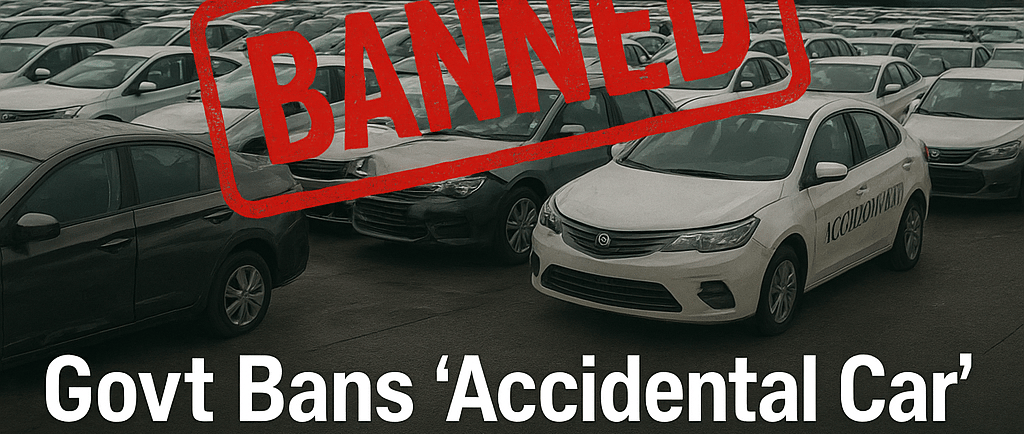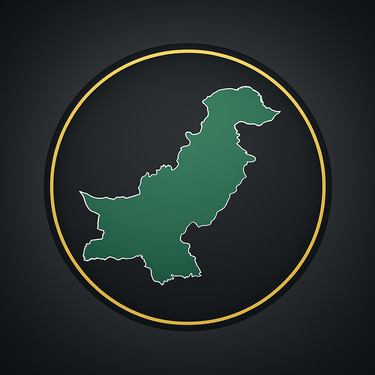Govt Bans Accidental Car Imports | 40% Tax on Used Vehicles Stirs Public Outcry
Pakistan’s government bans import of damaged cars and imposes 40% new tax on used vehicles to protect local auto industry. Public reaction intensifies as prices remain high despite trade liberalization plans.
NATIONALBUSINESSINTERNATIONAL
8/26/20252 min read


Pakistan to Ban Import of Accidental Cars, Slap 40% New Tax on Used Vehicle Imports
ISLAMABAD:
The government plans to ban the import of damaged vehicles and introduce a 40% additional tax on commercial imports of used cars starting next month, a move aimed at shielding the local auto industry but delaying any relief for consumers.
Speaking during a joint session of the Senate Standing Committees on Finance and Industry, Joint Secretary for Trade Policy Mohammad Ashfaq confirmed that only high-quality, non-accidental vehicles would be allowed under the new policy. He also disclosed that this tariff hike aligns with Pakistan’s commitments under its agreement with the International Monetary Fund (IMF).
At present, commercial car imports are restricted, and many vehicles enter the country through misuse of transfer-of-residence, baggage, or gift schemes—fulfilling nearly 25% of local market demand. Consumers often prefer mildly accidental imported cars over locally assembled ones due to better perceived value and quality.
IMF Pushes for Trade Liberalization
The IMF has directed Pakistan to open commercial imports of used cars up to five years old from September and to completely lift age and quantity restrictions by July next year. Over the next four years, the 40% additional tariff will be phased out entirely, while 6–8-year-old vehicles will also become eligible for import, provided strict environmental standards are maintained.
Under the IMF program, Pakistan must reduce overall import tariffs from 20.2% to 9.7% within five years—a 52% drop. In FY26 alone, average tariffs will fall to 15.7%, lowering customs duties, additional levies, and regulatory charges. Auto sector tariffs, currently as high as 35% under the Auto Policy, will be dismantled starting July 1, 2026.
Local Auto Industry Pushback
Despite this trade liberalization, local assemblers insist car prices will not drop, pointing to high government taxes ranging from 30% to 61% of a vehicle’s total price.
Small cars: Tax share around 30%, including Rs32,935 in new levies.
Toyota Altis: 44% of price consists of taxes.
LCV pickup: 60% tax share, with Rs11.3 million in levies on an Rs18.8 million price.
Toyota Fortuner SUV: 61% tax share, adding Rs14.8 million in taxes to a Rs24.4 million price tag.
Indus Motors CEO Ali Asghar Jamali argued that government taxation—not manufacturer pricing—is the real reason for high costs. He admitted that local cars have just two airbags compared to six in imported models, but denied any difference in build quality.
Jamali also noted that it might become more profitable for local carmakers to import and resell used cars instead of producing them, a sentiment echoed by a Pak Suzuki Motors executive, who suggested local production is no longer viable due to high costs.
Debate Over IMF’s Role
Senator Aon Abbas Qadir, who chairs the industry committee, questioned why the IMF’s trade conditions impact consumers so directly, while Senator Qadir backed reducing protectionism, arguing it would push manufacturers to improve efficiency and safety standards.
The government has yet to decide whether special import schemes (like those for overseas Pakistanis) will continue once restrictions are lifted. Meanwhile, PAMA and PAAPAM—the auto manufacturers and parts makers’ associations—are lobbying heavily against IMF-driven reforms.
Explore
Your lens into Pakistan's vibrant stories.
Connect
Discover
+92-300-0440097
© 2025. All rights reserved.
